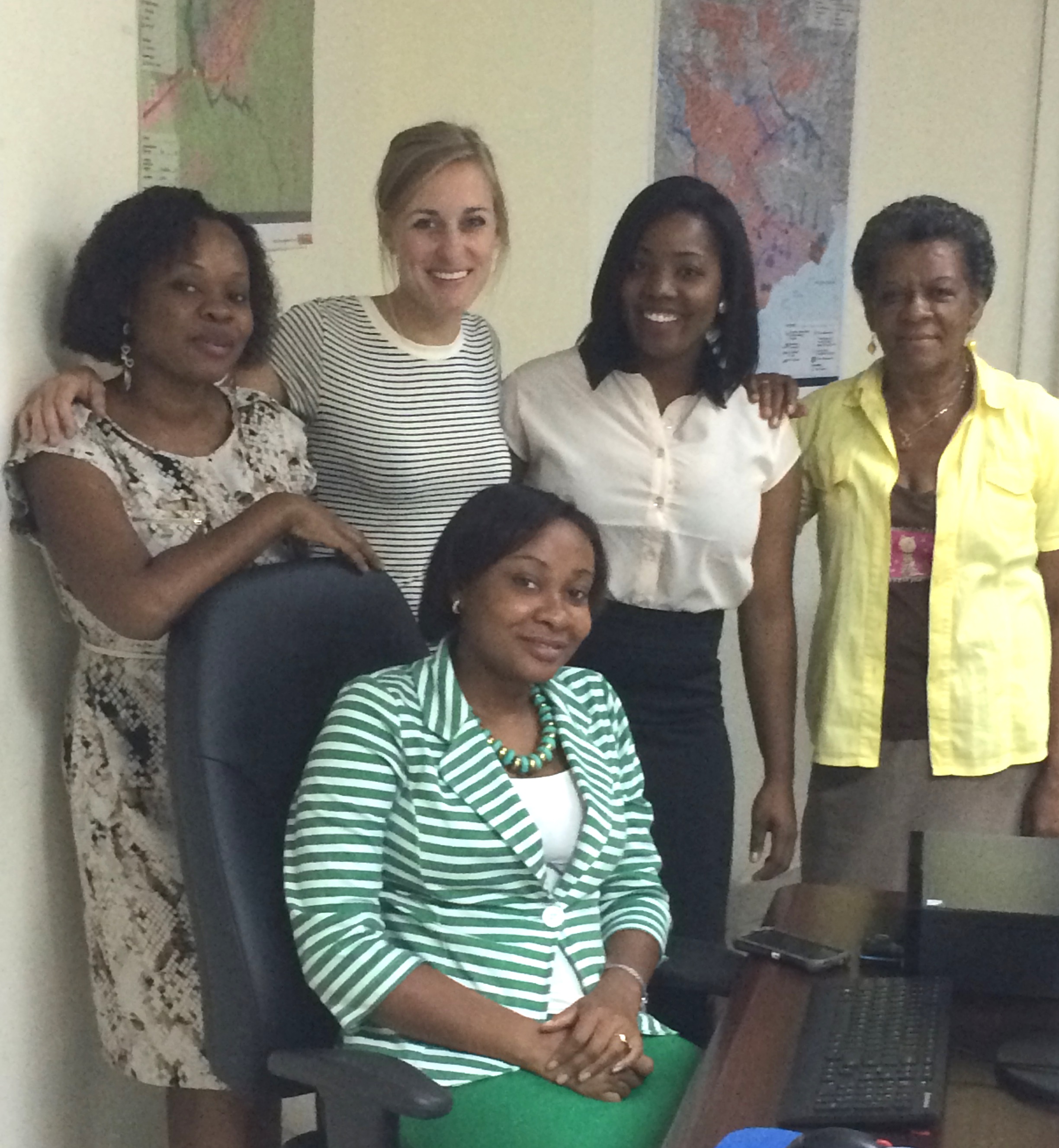
Fulbright U.S. Student Esther Francis with her daughter Matayah after performing a traditional Veracruz dance for Mother’s Day at Alberto Correa, a public elementary school in Mexico City
I dare say I’m not the typical Fulbright U.S. Student. I started taking college classes early—at age 14—and finally finished almost 13 years later. As a non-traditional student and single mother, the Fulbright U.S. Student Program afforded me opportunities that may have otherwise been beyond my reach, or would have perhaps taken another thirteen years to achieve. It was one of the best experiences of my life.
My Fulbright year was my second time living and studying in Mexico. My daughter and son, then ages four and seven, accompanied me while studying Spanish in Guanajuato as a Gilman recipient. When I returned to Park University after my Gilman, the Fulbright Program Adviser at my university immediately picked up on my interest in pursuing further overseas studies. She told me about Fulbright and walked me through the different types of grants. I knew immediately that the Fulbright Binational Business Internship in Mexico was my ticket. She told me the first Park student to receive a Fulbright grant was another non-traditional student who was just finishing up her own grant. Coincidentally, I knew her and had grown up with her daughter. “If she can do it,” I thought, “so can I.”
I received my Fulbright placement as a Human Resources Analyst for the United Nations Association in Mexico (AMNU). Deport-es para Compartir (Sports for Sharing), AMNU’s flagship program, is a program which aims to form better citizens from childhood by encouraging children to participate in their community and to act as change agents on the local level. I coordinated recruitment processes, redesigned the employee performance evaluation, and drafted the department’s first Policies and Procedures Manual. Each task required extensive collaboration with program staff and I had to adapt to a new culture both personally and professionally. Those times when I joined the operations team in the field working directly with children and education staff were particularly rewarding. The grant also included graduate courses at the Instituto Tecnológico Autónomo de México, which supplemented my educational and cultural experiences.
Depending upon your situation, Fulbright can offer extra allowances for dependents, so I was excited to bring my children with me once again. But this time, my son was not able to join my daughter and I due to custody issues. I had an incredibly tough decision to make: leave my then nine year-old son in the United States to live with his father, or decline the Fulbright. Although it was an enormous sacrifice for all of us, my son stayed at home with other family members. My daughter and I missed him terribly. It was a very difficult choice to make, but I don’t regret the decision for a minute. He had a great year in the U.S. while we had a great year in Mexico.
Due to the rigor of my research and studies, it was difficult to stick to the specific community involvement plans I made before we arrived, but we found another route to community engagement through my daughter’s school. It was as life-changing for my children as it was for me. As a result of our experiences abroad, my children have become fluent in a second language, gained a deeper appreciation for cultural differences, and learned how to better adjust to change. They love talking about our time in Mexico with friends and family, and look forward to living, studying or working abroad again when they’re of age.
I have a passion for helping others to set goals and overcome obstacles in order to achieve them. I volunteered during the final months of my grant teaching English to a few coworkers. When they first asked for my assistance, I wondered how much I could help, but teaching came more naturally to me than I anticipated. With this experience under my belt, I’ve worked as a substitute teacher in Spanish or Head Start classrooms for two local school districts at home in the United States. I have continued to volunteer with Mid-America Head Start (the local grantee for the Kansas City and Independence, Missouri Public Schools), YMCA, and Family Conservancy Head Start Programs initiatives such as parent leadership, community involvement, and financial literacy. I also partner with individuals and organizations in my community to provide financial education and customized financial planning to “main street families.”
I offer three simple pieces of advice for Fulbright applicants. First, don’t allow obstacles to prevent you from pursuing or accepting a Fulbright grant. Use them as steps towards success. Second, reach out to the support networks available within your university, including your Fulbright Program Adviser, as well as your faculty and academic advisers. Third, if you are awarded a grant, practice your host country language before arriving (paying close attention to the technical vocabulary in your field) to prepare and increase your fluency.
Buena suerte!


3 Comments
Hello Esther,
I am applying to the Binational Business Internship and would be interested in learning more of your experience. Do you mind if we communicate through email?
Hi Ysidora,
Esther Francis is a 2013 Fulbright Alumni Ambassador and can be reached at EFrancis.AlumniAmbassador@fulbrightmail.org. Good luck!
Thank you!